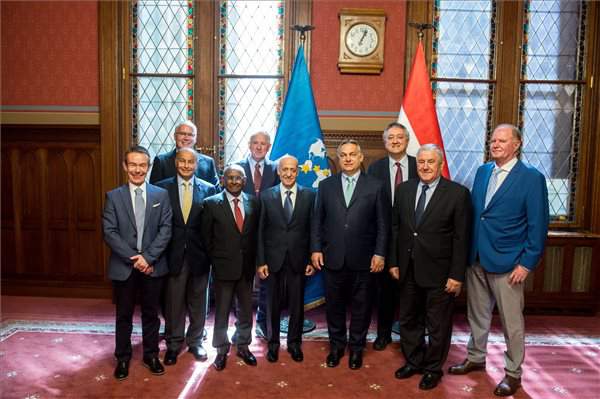According to zoom.hu, the government is currently preparing the expansions needed to host the 2032 Olympic Games in Budapest. If they manage to start most of the developments until 2022 it will be easier to convince international decision-makers. In fact, the government already decided to invest 750 bn HUF (EUR 2.4bn) in the project. According to the 2015 calculations, hosting the Olympic Games would cost 3,000 bn HUF (9.5 bn EUR). If PM Orbán managed to lower the costs by such tricks it would be easier for people to accept the project when the application is handed in.
Dream killers vs dream fulfillers
As we already reported, Budapest campaigned for hosting the 2024 Summer Olympic and Paralympic Games. However, the issue swiftly became a political question since only the government supported it while opposition parties resisted. In fact, they said that
the Fidesz-government’s corruption would ruin the whole Olympic project
Thus, the civil Momentum Movement submitted over a quarter million signatures to the Budapest election office to initiate a local referendum on Budapest’s bid to host the 2024 Olympic Summer Games. Since the government did not risk a possible failure on a referendum, the city withdrew its application in 2017 February.

PM Orbán does not give up
However, the project might
take on a new lease of life after Orbán’s landslide victory in the parliamentary elections.
Besides, even though Budapest withdrew its application, the developments mentioned in it are currently being carried out. The government is very conscious in this regard. For example, after the elections they supported the Hungarian Athletics Association’s application for hosting the 2023 IAAF World Championship. Therefore, they started to build an athletics stadium for 55 thousand spectators.
The date is important because the application process for hosting the 2032 summer Olympic Games is going to start that year. If Hungary manages to host the IAAF World Championship and finishes the stadium by then it would
affect not only International Olympic Committee but also the Hungarian public opinion.
Seemingly decreasing costs
According to zoom.hu, if the Olympic infrastructure was almost ready until 2022-2023 the government could speak about much less costs than in 2015. This is important because the Hungarian Olympic Committee stated that Hungary will not host the Olympic Games without a positive referendum.

Therefore,
it is important to communicate lower costs than in 2015.
Clearly, the developments the government is carrying out were part of Budapest’s 2015 application. These are, for example, the Budapest Athletics Stadium (23.67 bn HUF – EUR 75.6M), Kemény Ferenc-program (34.8 bn HUF – EUR 111M) or the Olympic village near Soroksári street (18 bn HUF – EUR 57.5M).
There are some public procurements as well supporting the project. For example, the widening of the M1 motorway or the new Danube-bridge.
Long-term commitment: 658 bn HUF
In fact, zoom.hu collected some developments of which the government have not decided about yet but
their support is unquestionable.
For example, the athletics stadium, developments in North-Csepel and the Velodrome for 135 bn HUF (EUR 431M). Furthermore, the railway replacement in Ferencváros (80 bn HUF – EUR 255M), the Olympic village (184 bn HUF – EUR 588m), the new Danube-bridge (75 bn HUF – EUR 239M) or the widening of the M1 motorway (184 bn HUF – EUR 588M).